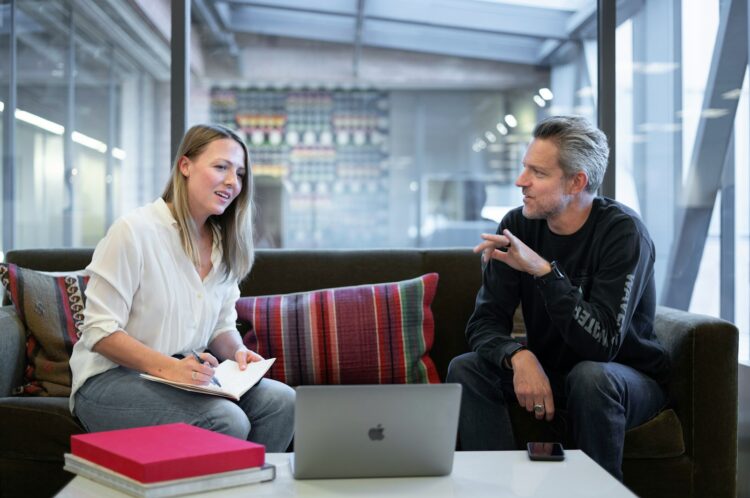
Job interviews are often the final hurdle between you and a job offer. But even the strongest résumé can’t protect you from the impression you make in the room. Small missteps can completely change how an interviewer perceives you. Here are 15 common mistakes to avoid if you don’t want to sabotage your chances.
Showing Up Late

Being late is one of the fastest ways to lose credibility in an interview. It signals that you don’t value the interviewer’s time, and it plants seeds of doubt about your reliability. Even if traffic, transit delays, or unexpected events occur, the responsibility ultimately falls on you. Always plan extra time, aim to arrive early, and if something unavoidable happens, call ahead immediately.
Dressing Inappropriately

How you dress communicates professionalism before you even speak. Turning up in clothes that are too casual, wrinkled, or flashy suggests you don’t understand the company’s culture or that you aren’t taking the interview seriously. On the flip side, overdressing can make you seem disconnected from the team environment. The safest choice is polished, well-fitted attire that matches the company’s standards.
Poor Body Language

Nonverbal cues often speak louder than words. Slouching, crossing your arms, or avoiding eye contact can make you appear disinterested, insecure, or defensive. Fidgeting with pens, phones, or jewelry is distracting. Instead, sit upright, lean in slightly to show engagement, and maintain comfortable eye contact. Positive body language demonstrates confidence, attentiveness, and respect—qualities every employer values.
Talking Too Much (or Too Little)

Balance is everything when it comes to interview communication. Rambling on without structure makes you appear scattered and unprepared, while giving short, one-sentence answers makes you look uninterested or underqualified. The key is to answer questions fully but concisely. Use examples to illustrate your points, and remember that interviews are a dialogue, not a monologue.
Badmouthing Past Employers

Even if you had a terrible boss or a toxic workplace, venting about it in an interview is a mistake. It creates doubts about your professionalism and makes the interviewer wonder if you’ll speak negatively about their company in the future. Instead, reframe negative experiences as opportunities for growth. Focus on what you learned, how you adapted, or why you’re now seeking a better fit.
Not Researching the Company

Employers want to feel like you’re genuinely interested in their specific role—not just any job. Walking into an interview without basic knowledge of the company’s mission, values, or recent work makes you appear lazy and disengaged. A little research goes a long way. Review the company’s website, recent press releases, and even employee reviews so you can tailor your answers.
Failing to Ask Questions

When an interviewer asks if you have questions and you say “No,” it looks like you didn’t prepare or don’t care. Employers expect curiosity because it signals genuine interest and critical thinking. Prepare thoughtful questions about the role, team dynamics, or future projects. Asking smart questions not only impresses but also helps you figure out if the company is truly a fit for you.
Overemphasizing Salary and Benefits

Compensation matters, but focusing on it too early makes you look like money is your only motivation. Employers want to hire people who care about the work and the company mission. Asking about perks right away gives the wrong impression. Instead, let the employer bring it up, or save those discussions for later stages once your value has already been demonstrated.
Not Tailoring Your Answers

Generic answers like “I’m a hard worker” or “I’m a team player” don’t stand out. Interviewers hear them daily and quickly tune out. The real power lies in tailoring your responses to the role and company. Use the job description as a roadmap—tie your skills and experiences directly to what they’re seeking. Personalizing answers shows that you understand the position and can deliver results.
Interrupting the Interviewer

Interruptions, even if you’re just excited to respond, can be perceived as disrespectful or impatient. Cutting someone off makes you look like a poor listener, which is a major red flag in any role. Instead, practice active listening. Let the interviewer finish their thought completely, then pause briefly before answering. Showing patience and attentiveness builds rapport and demonstrates maturity.
Lack of Enthusiasm

Even if you’re qualified, a flat, disinterested tone can sink your chances. Employers don’t just want skills—they want people who are genuinely excited to join their team. If you come across as indifferent, they may assume you’ll lack motivation on the job. Energy, positivity, and a little passion go a long way. Let your tone, body language, and follow-up questions reflect real enthusiasm.
Lying or Exaggerating

It can be tempting to inflate your skills or experiences, but dishonesty almost always catches up with you. Employers can verify your history, and even small lies can damage your credibility. Worse, if you land the job but can’t deliver what you promised, it leads to failure. Be honest about your abilities, and if you lack something, emphasize your willingness and capacity to learn.
Forgetting to Highlight Achievements

Many candidates fall into the trap of just listing job duties instead of sharing accomplishments. Saying “I managed a team” is forgettable; saying “I led a team of five that improved productivity by 20%” is memorable. Employers want proof that you deliver results. Always back up responsibilities with measurable achievements, whether that’s numbers, outcomes, or specific examples of impact.
Poor Handling of Weaknesses

When asked about weaknesses, many candidates panic. Saying “I don’t have any” makes you sound arrogant, while oversharing big flaws undermines your credibility. The best strategy is to share a minor but real weakness—something that won’t raise concerns—and then explain how you’re working on it. This demonstrates humility, self-awareness, and a commitment to growth, all of which employers respect.
Skipping the Thank-You

An interview doesn’t end when you walk out the door. Following up with a thank-you email or note reinforces your professionalism and enthusiasm. It’s a simple step many candidates overlook, but it can set you apart. A thoughtful message shows gratitude for their time, reiterates your interest, and leaves a lasting impression. It’s a small detail that can tip the decision in your favor.

